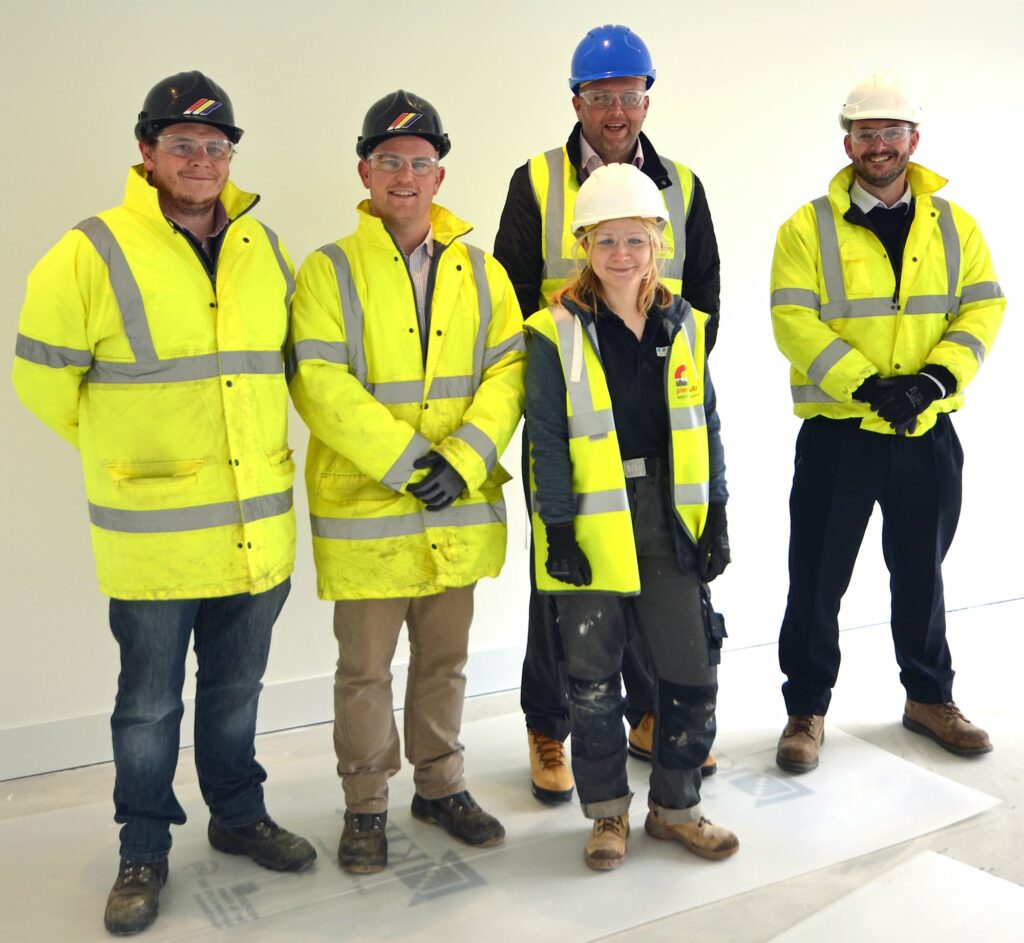The top challenges in construction recruitment and how we overcome them
In 2023 there are a number of challenges facing our sector.
A quick google will show you plenty of articles discussing the pitfalls of our industry, the problems facing construction workers, and of course, the issues businesses deal with day to day. In this article we’ll look at the top challenges in construction recruitment, but more importantly, we’ll look at how we can overcome them.
What are the top challenges in construction recruitment?

We’ll dig deeper into 7 of the challenges we feel are the most concerning as we move into the latter part of the year and head closer to 2024.
An ageing workforce
With less young adults choosing to join the construction industry, an ageing workforce has the potential to become a huge problem in the future. According to the Office of National Statistics (ONS), in 2019 there were almost 400,000 skilled construction trade workers between the age of 50 and 65. All of these workers are likely to retire within the next 10 or so years, and unfortunately, there aren’t many younger workers waiting to take their place at the top of the tree.
Rightly or wrongly, blue collar roles are often seen as a world away from the tech driven roles that appeal to the younger generations. Until our industry embraces technology, we are likely to continue to struggle to attract the next generation of construction workers .
The skills shortage
As our skilled workers age, we’re losing the high quality skills our workers have spent years perfecting. Although the industry has put effort into encouraging more apprentices within construction, we’re not meeting the levels we need to regain those key skills. 83% of the construction sector are reporting difficulties in recruitment, and there aren’t enough skilled workers to plug the gaps.
Brexit and its impacts
Prior to Brexit, EU nationals made up a large proportion of the UK construction workforce. Figures collated by the ONS suggest that until the end of 2020, over 9% of the construction workforce in the UK were EU nationals. In London, this rose to 30%. Now, it’s harder than ever for EU nationals to work in the UK, and in turn, this is likely to create longer term impacts for the industry, including delays on projects due to staff shortages, and higher costs thanks to a dwindling workforce.
Demographic changes
As society develops, so does the perception of what is considered a ‘good’ job. When technology is such a key part of life for young people, an industry that doesn’t embrace technological advances is unlikely to appeal.
Equally, construction has traditionally been a male dominated industry, and while we are slowly shedding that image, it’s too soon to say that creating a more welcoming and diverse workforce has been achieved.
Covid and its long-term effects
Construction was hit hard by the pandemic, and even though we bounced back, there’s no doubt that we lost good workers during the pandemic. Some took early retirement, others left for another industry, and the effects of those sudden changes are still causing challenges today.
Salaries do not reflect inflation
At P.I.E.R, we often refer to the race to the bottom between construction agencies. In an attempt to win new business, younger recruitment agencies will undercut their competition. A reduction in wages, and often a very low profit margin to boot, does very little other than create an endless cycle of doom. Workers who don’t get paid enough won’t stay. Agencies that don’t retain workers won’t survive.
But it’s not just workers engaged through an agency that find their salaries don’t reflect inflation. Permanent construction workers are having the same issue, and expected wages in construction aren’t at the levels they should be.
Increasing legislation
Legislation within our industry has tightened and evolved in recent years. While construction must be correctly regulated, changes like the removal of grandfather rights have encouraged some workers to retire early. Legislation changes impact every stage of the recruitment process, and can delay or even prevent workers taking on certain roles. For example, new immigration rules have created challenges for EU workers who want to take on construction roles in the UK.

What are the wider impacts on the construction industry?
All of the challenges listed above combine to create wider and potential long term issues for those in construction.
A growing shortage of new construction workers
The shortage of workers is likely to continue into the near future as more older workers retire. As this happens, we can expect delays, an increase in project timelines, and crucially, potentially mistakes made when under qualified workers are given positions that are suitable for highly skilled workers.
Application numbers are dropping
With a shortage of workers, the number of people applying for individual roles has decreased. According to research, recruitment in construction needs to increase by 25% over the next 5 years to meet the expected demand.
High turnover rates
When workers face low pay rates, poor conditions, and a depleted workforce, it’s no wonder that staff turnover rates are high. Even if you manage to fill the roles you need, there’s no guarantee they’ll stay with you for long. With each new worker that fills the same role, you waste time and money that could be spent on new business.
Compliance is increasingly lacking
Not all construction companies seem to understand the importance of compliance, and for that reason, it’s increasingly common for businesses to overlook compliance policies and legislation. While it might go undetected for a short time, a lack of respect for compliance is a risky business. You could become liable for any compliance errors, and you risk legal or financial action against your organisation.

How PIER are helping construction companies overcome the challenges
If your business is facing challenges at the moment and you’re wondering where to turn, get in touch with P.I.E.R. Whether you’re struggling to recruit, in need of more skills, or confused about compliance, we can help you get your business back on track.
Providing complete and bespoke construction workforces
Our approach is tailored to each individual client, so from concept to completion, we can help you create a bespoke construction workforce that will be with you every step of the way. Engage with us as early as possible so we can understand your needs, look at your timeline, and find the right workers for your project.
Committed to reducing staff turnover
We know high staff turnover is damaging the construction industry, and we are already working to reduce staff turnover for all of our clients. With good communication, fair pay, and the ability to match the right skilled worker to the right role, you can have reliable, committed, and experienced construction workers that will last longer than a week or two. Our team understand every nuance of construction and has an excellent understanding of the skills of each worker on our books.
Fighting for better pay for workers
We know workers should be paid fairly, so we make sure they are. At P.I.E.R we keep on top of market rates so that our workers receive a wage that matches their experience, skill level, and the job required.
Solving complex hiring challenges
Projects change, timelines extend, and the work required can shift as the project gets going. By offering our clients a totally bespoke workforce, we can plan ahead to fill any technical roles well before they’re needed, and call in for reinforcements if you need more labour than initially intended. We’ll be your point of contact for the duration of your project, so that when your requirements change, we can be there to make sure your workforce reflects your new needs.
A strong focus on compliance throughout the recruitment process
As well as offering you advice on how to ensure your business is tax compliant, compliance is at the forefront of every aspect of our recruitment process. We invest in partners like SafeRec to help us protect our clients and candidates against tax liabilities, and we take the time to explain our processes to you – so that you know our policies as well as you know your own.
Offering training for workers to help fill the skills gap
All P.I.E.R workers are offered training opportunities when required, and if you need to upskill your own workers, we can help with that too. By giving workers the chance to develop their skills and hone their craft, we hope to inspire loyalty, and do our bit to help fill the skills gap.
Get in touch today, and let P.I.E.R help you navigate the challenges of recruiting a construction workforce.
References:
- https://www.crooton.com/2021/02/18/the-challenges-of-construction-recruitment-in-2021/
- https://www.opsstaffing.net/2023/02/Understanding-the-Recruitment-Challenges-in-the-Construction-Industry.html
- https://eandt.theiet.org/content/articles/2022/07/construction-and-manufacturing-firms-face-severe-recruitment-challenges/
- https://www.constructionnews.co.uk/sections/news/25-recruitment-boost-needed-despite-drop-in-demand-citb-says-23-01-2023/







